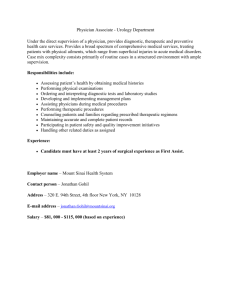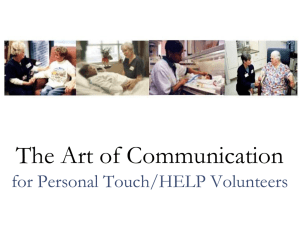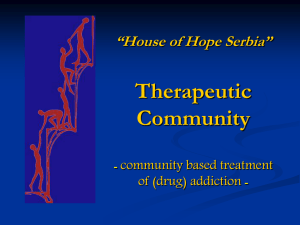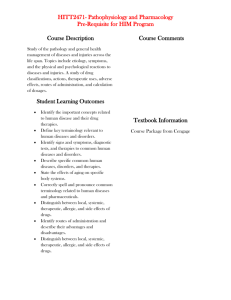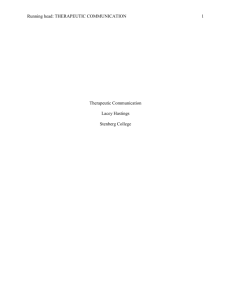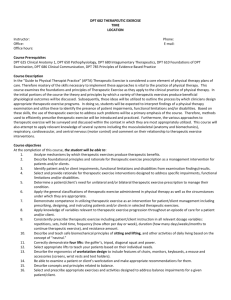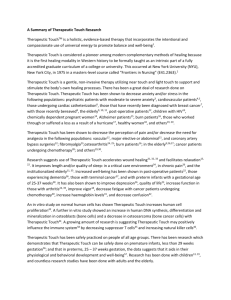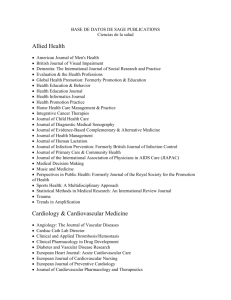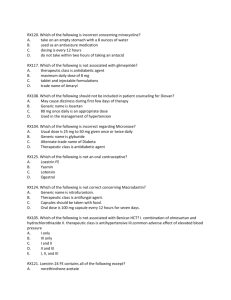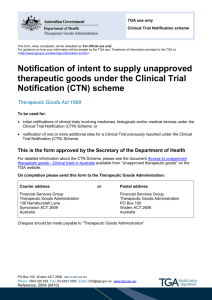here - NZ College of Mental Health Nurses
advertisement
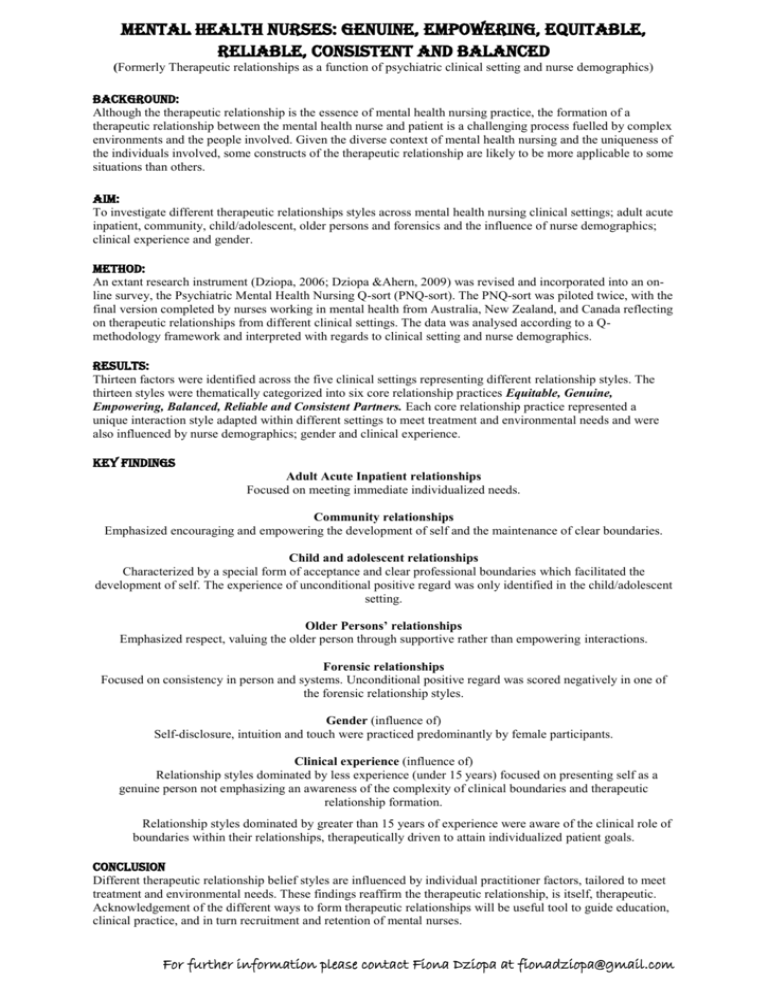
Mental Health Nurses: Genuine, Empowering, Equitable, Reliable, Consistent and Balanced (Formerly Therapeutic relationships as a function of psychiatric clinical setting and nurse demographics) BACKGROUND: Although the therapeutic relationship is the essence of mental health nursing practice, the formation of a therapeutic relationship between the mental health nurse and patient is a challenging process fuelled by complex environments and the people involved. Given the diverse context of mental health nursing and the uniqueness of the individuals involved, some constructs of the therapeutic relationship are likely to be more applicable to some situations than others. AIM: To investigate different therapeutic relationships styles across mental health nursing clinical settings; adult acute inpatient, community, child/adolescent, older persons and forensics and the influence of nurse demographics; clinical experience and gender. METHOD: An extant research instrument (Dziopa, 2006; Dziopa &Ahern, 2009) was revised and incorporated into an online survey, the Psychiatric Mental Health Nursing Q-sort (PNQ-sort). The PNQ-sort was piloted twice, with the final version completed by nurses working in mental health from Australia, New Zealand, and Canada reflecting on therapeutic relationships from different clinical settings. The data was analysed according to a Qmethodology framework and interpreted with regards to clinical setting and nurse demographics. RESULTS: Thirteen factors were identified across the five clinical settings representing different relationship styles. The thirteen styles were thematically categorized into six core relationship practices Equitable, Genuine, Empowering, Balanced, Reliable and Consistent Partners. Each core relationship practice represented a unique interaction style adapted within different settings to meet treatment and environmental needs and were also influenced by nurse demographics; gender and clinical experience. KEY FINDINGS Adult Acute Inpatient relationships Focused on meeting immediate individualized needs. Community relationships Emphasized encouraging and empowering the development of self and the maintenance of clear boundaries. Child and adolescent relationships Characterized by a special form of acceptance and clear professional boundaries which facilitated the development of self. The experience of unconditional positive regard was only identified in the child/adolescent setting. Older Persons’ relationships Emphasized respect, valuing the older person through supportive rather than empowering interactions. Forensic relationships Focused on consistency in person and systems. Unconditional positive regard was scored negatively in one of the forensic relationship styles. Gender (influence of) Self-disclosure, intuition and touch were practiced predominantly by female participants. Clinical experience (influence of) Relationship styles dominated by less experience (under 15 years) focused on presenting self as a genuine person not emphasizing an awareness of the complexity of clinical boundaries and therapeutic relationship formation. Relationship styles dominated by greater than 15 years of experience were aware of the clinical role of boundaries within their relationships, therapeutically driven to attain individualized patient goals. CONCLUSION Different therapeutic relationship belief styles are influenced by individual practitioner factors, tailored to meet treatment and environmental needs. These findings reaffirm the therapeutic relationship, is itself, therapeutic. Acknowledgement of the different ways to form therapeutic relationships will be useful tool to guide education, clinical practice, and in turn recruitment and retention of mental nurses. For further information please contact Fiona Dziopa at fionadziopa@gmail.com
